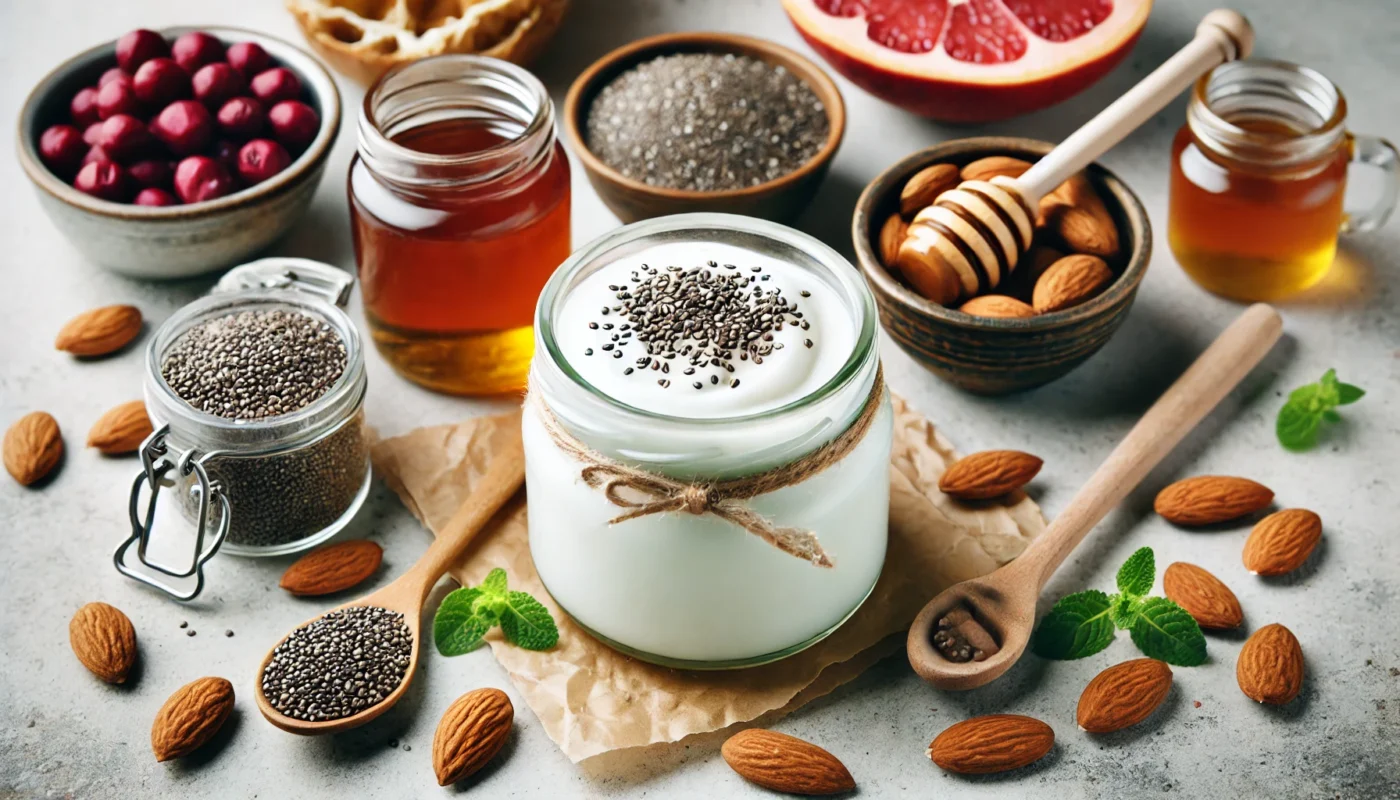Inflammation is a natural immune response that plays a critical role in healing and defending the body against foreign invaders. However, when inflammation becomes chronic, it can contribute to various health issues, including arthritis, heart disease, and even cancer. As interest in dietary strategies to manage inflammation grows, yogurt has emerged as a food of interest due to its potential anti-inflammatory properties. But does yogurt really help with inflammation, or could it exacerbate it? Let’s delve into the scientific evidence to better understand yogurt’s role in inflammation.
You May Also Like: Exploring the Irish Autoimmune Diet Benefits
Understanding Inflammation
Before diving into the specifics of yogurt, it’s essential to understand what inflammation is and why it occurs. Inflammation is the body’s way of signaling the immune system to heal and repair damaged tissues, as well as defend against harmful invaders like bacteria and viruses. This process, while beneficial in the short term, can become problematic if it persists over time, leading to chronic inflammation.
The Mechanisms Behind Inflammation
The inflammatory process begins when the immune system identifies a threat, such as an injury or pathogen. This triggers the release of chemical signals, like cytokines, which recruit immune cells to the affected area. These cells work to eliminate the threat and initiate tissue repair. While this mechanism is critical for recovery, its dysregulation can lead to chronic inflammation, which has been linked to numerous diseases.
Acute vs. Chronic Inflammation
Acute inflammation is the body’s immediate response to an injury or infection, characterized by redness, heat, swelling, and pain. This type of inflammation is usually short-lived and subsides once the healing process is complete. Chronic inflammation, on the other hand, is a prolonged inflammatory response that can occur even when there is no apparent injury or infection. This persistent inflammation is what can lead to various health problems.
Factors Contributing to Chronic Inflammation
Several factors can contribute to the development of chronic inflammation, including lifestyle choices, environmental factors, and genetic predispositions. Poor diet, lack of exercise, smoking, and stress are all known contributors. Additionally, conditions like obesity and autoimmune disorders can exacerbate chronic inflammation, creating a cycle that is difficult to break without intervention.

The Role of Dairy in Inflammation
Dairy products, including yogurt, have been the subject of debate regarding their role in inflammation. Some studies suggest that dairy can be inflammatory, while others indicate potential anti-inflammatory effects. Let’s explore how yogurt, as a specific type of dairy product, fits into this picture.
The Nutritional Profile of Dairy
Dairy products are rich in essential nutrients such as calcium, vitamin D, and protein, which are important for maintaining bone health, muscle function, and overall wellness. However, the presence of saturated fats and lactose can make dairy a controversial topic when it comes to inflammation. Understanding the balance of these components is crucial in determining the inflammatory potential of dairy.
Is Yogurt Inflammatory?
The question of whether yogurt is inflammatory or anti-inflammatory is complex and depends on several factors, including individual tolerance and the type of yogurt consumed. Some people may experience an inflammatory response to yogurt, particularly those with lactose intolerance or dairy allergies. However, for many others, yogurt may offer anti-inflammatory benefits.
Individual Responses to Dairy
Each person’s response to dairy can vary significantly. While some individuals might experience digestive discomfort or allergic reactions, others may find dairy to be a beneficial part of their diet. This variability underscores the importance of personalized nutrition, where dietary choices are tailored to individual health needs and tolerances.
Yogurt and Its Potential Anti-Inflammatory Properties
Yogurt is rich in probiotics, which are live bacteria that can confer health benefits when consumed in adequate amounts. These beneficial bacteria are thought to play a role in modulating the immune system and reducing inflammation. Let’s examine the evidence supporting yogurt’s potential anti-inflammatory effects.
The Role of Probiotics in Gut Health
Probiotics found in yogurt, such as Lactobacillus and Bifidobacterium species, have been shown to influence the gut microbiota positively. A healthy gut microbiota is associated with reduced inflammation, as it helps maintain the integrity of the gut lining and prevents the translocation of harmful bacteria and toxins into the bloodstream, which can trigger inflammatory responses.
Probiotics and Systemic Inflammation
Emerging research suggests that the health of the gut microbiome can impact systemic inflammation. By promoting a balanced microbial environment, probiotics can potentially reduce the levels of systemic inflammatory markers, contributing to overall health improvement. This connection between gut health and inflammation is a growing area of interest in medical research.
Research on Yogurt and Inflammation
Several studies have explored the impact of yogurt consumption on inflammation markers in the body. A study published in the journal Nutrition Research found that yogurt consumption was associated with reduced levels of inflammatory markers in overweight and obese individuals. Another study published in the British Journal of Nutrition reported that regular yogurt consumption improved gut health and reduced inflammation in healthy adults.

Greek Yogurt: A Special Case
Greek yogurt, a thicker and creamier version of regular yogurt, has gained popularity for its high protein content and potential health benefits. But is Greek yogurt inflammatory or anti-inflammatory?
The Nutritional Advantages of Greek Yogurt
Greek yogurt is known for its higher protein content compared to regular yogurt, which can be beneficial for muscle repair and satiety. This makes it a popular choice among athletes and those looking to maintain muscle mass while managing weight. Additionally, Greek yogurt often contains less lactose, making it a preferable option for those sensitive to lactose.
Is Greek Yogurt Anti-Inflammatory?
Greek yogurt shares many of the same probiotic benefits as regular yogurt, which can contribute to its potential anti-inflammatory effects. Additionally, the high protein content in Greek yogurt can aid in muscle repair and recovery, making it a popular choice among fitness enthusiasts.
Choosing the Right Greek Yogurt
When choosing Greek yogurt, it’s essential to pay attention to added sugars and artificial ingredients, as these can counteract its potential health benefits. Opting for plain, unsweetened Greek yogurt is the best choice for maximizing its anti-inflammatory potential. Some brands also offer fortified options with added vitamins and minerals, which can provide additional health benefits.
Cottage Cheese and Inflammation
Like yogurt, cottage cheese is another dairy product that is often questioned for its role in inflammation. Cottage cheese is a good source of protein and calcium, but does it contribute to inflammation?
The Composition of Cottage Cheese
Cottage cheese is low in fat and high in protein, making it a nutritious option for many. It provides a substantial amount of casein, a slow-digesting protein, which can help in muscle repair and maintenance. However, its sodium content can vary greatly, which is an important consideration for those managing inflammation.
Is Cottage Cheese Inflammatory?
Cottage cheese, like other dairy products, may trigger inflammation in individuals with lactose intolerance or dairy allergies. However, for those who tolerate dairy well, cottage cheese can be a part of an anti-inflammatory diet. It is important to choose low-sodium varieties and avoid those with added sugars and artificial flavors to maximize its health benefits.
Incorporating Cottage Cheese into a Balanced Diet
Including cottage cheese in your diet can be beneficial if done mindfully. Pairing it with anti-inflammatory foods like fruits, nuts, or seeds can enhance its nutritional profile while keeping inflammation in check. Being aware of portion sizes and choosing organic or minimally processed options can also contribute to its health benefits.

Practical Tips for Including Yogurt in an Anti-Inflammatory Diet
If you’re considering incorporating yogurt into your diet to help manage inflammation, here are some practical tips:
Choose Probiotic-Rich Yogurt
Look for yogurt with live and active cultures to ensure you’re getting the probiotic benefits. Probiotic-rich yogurts are often labeled as such, making them easier to identify. These yogurts can help support a healthy gut microbiome, which is crucial for managing inflammation.
Opt for Plain Varieties
Avoid added sugars and artificial flavors by choosing plain yogurt. You can add your own natural sweeteners like honey or fresh fruit. This not only enhances the flavor but also provides additional nutrients and antioxidants, which can aid in reducing inflammation.
Pay Attention to Portion Sizes
While yogurt can be beneficial, moderation is key. Consuming large amounts of dairy may not be suitable for everyone. It’s important to balance your yogurt intake with other nutrient-rich foods to maintain a well-rounded diet that supports overall health and inflammation management.
Monitor Your Body’s Response
Pay attention to how your body reacts to yogurt consumption. If you notice any adverse symptoms, consider reducing your intake or trying lactose-free options. Keeping a food diary can be helpful in identifying patterns and making informed dietary choices that align with your body’s needs.
Conclusion
Yogurt, with its rich probiotic content, has the potential to play a beneficial role in managing inflammation for many individuals. However, its effects can vary based on individual tolerance and the specific type of yogurt consumed. As with any dietary approach, it’s essential to listen to your body and make choices that align with your health goals and personal needs. By doing so, you can harness the potential benefits of yogurt as part of an anti-inflammatory diet and support your overall health and wellbeing.
Further Reading:
5 Types of Foods That Cause Inflammation
yogurt, inflammation, probiotics, gut health, anti-inflammatory diet, chronic inflammation, dairy products, Greek yogurt, cottage cheese, nutrition, health benefits, immune system, dietary strategies, inflammation markers, personalized nutrition
Important Note: The information contained in this article is for general informational purposes only, and should not be construed as health or medical advice, nor is it intended to diagnose, prevent, treat, or cure any disease or health condition. Before embarking on any diet, fitness regimen, or program of nutritional supplementation, it is advisable to consult your healthcare professional in order to determine its safety and probable efficacy in terms of your individual state of health.
Regarding Nutritional Supplements Or Other Non-Prescription Health Products: If any nutritional supplements or other non-prescription health products are mentioned in the foregoing article, any claims or statements made about them have not been evaluated by the U.S. Food and Drug Administration, and such nutritional supplements or other health products are not intended to diagnose, treat, cure, or prevent any disease.

